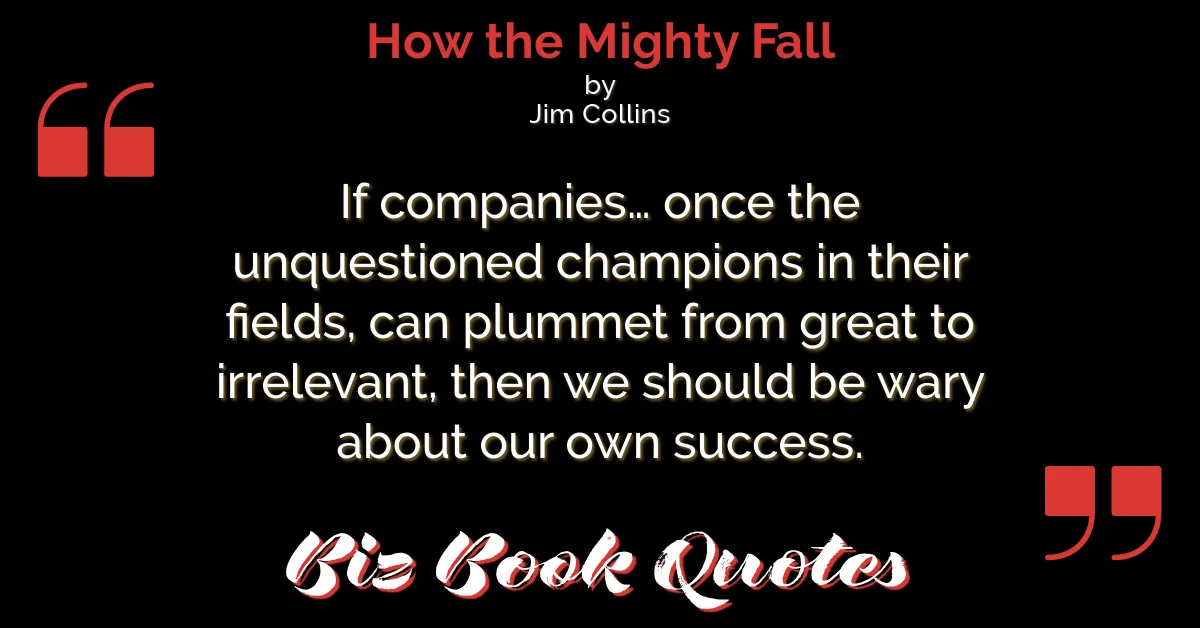 |
If companies… once the unquestioned champions in their fields, can plummet from great to irrelevant, then we should be wary about our own success.
|
008 |
 |
…just as great companies can topple, some rise again.
|
014 |
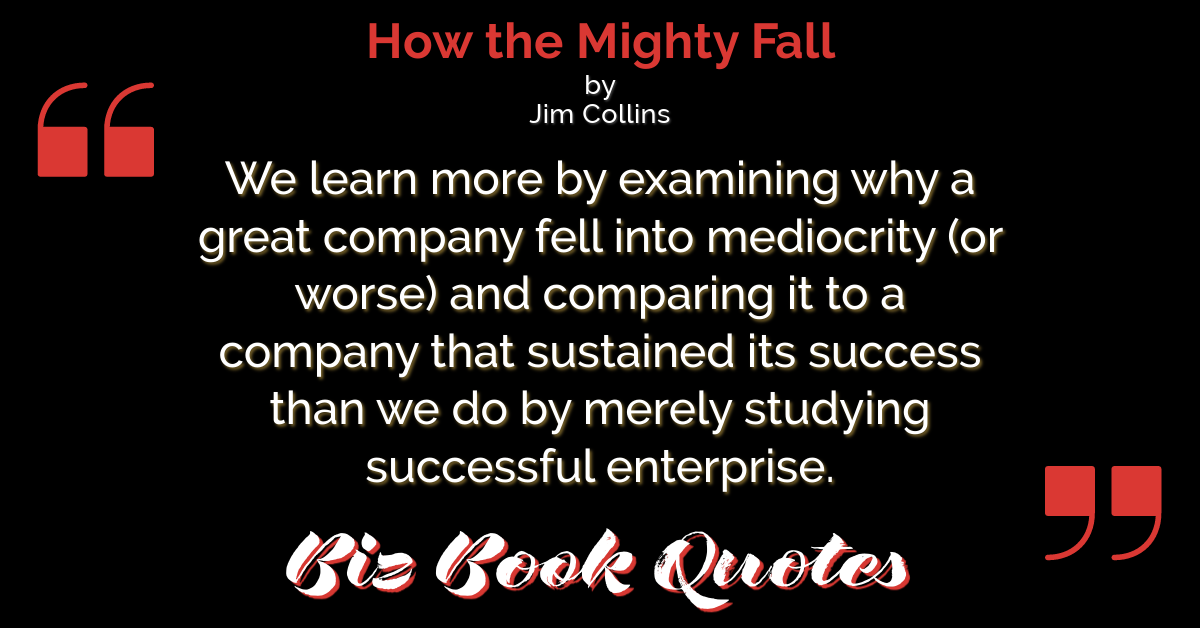 |
We learn more by examining why a great company fell into mediocrity (or worse) and comparing it to a company that sustained its success than we do by merely studying successful enterprise.
|
024 |
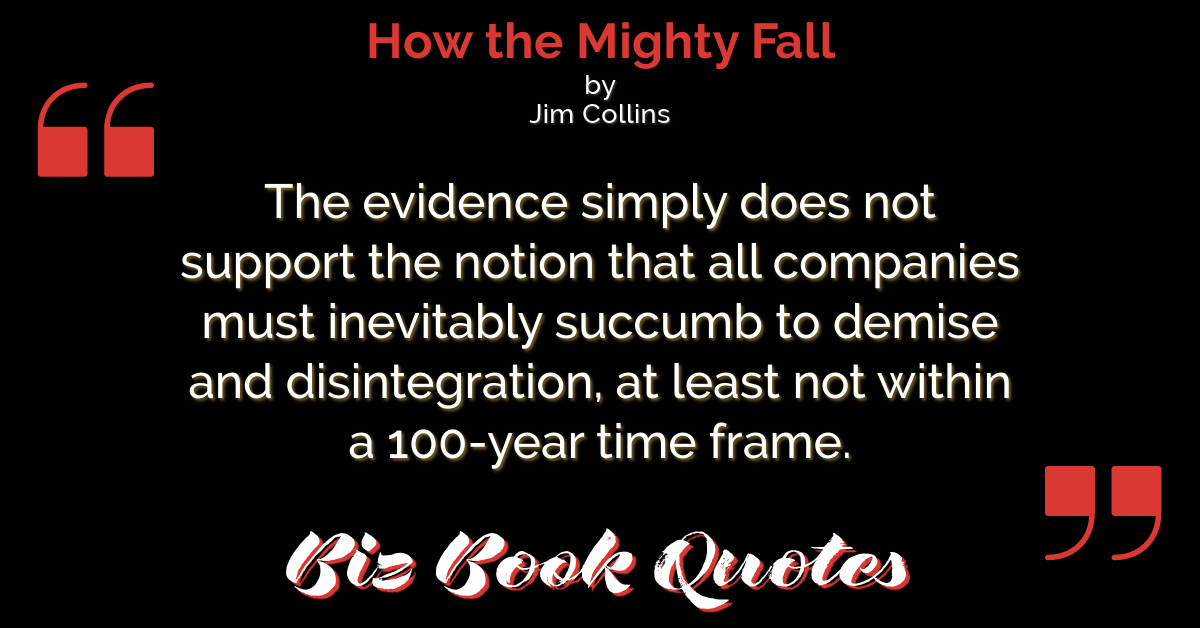 |
The evidence simply does not support the notion that all companies must inevitably succumb to demise and disintegration, at least not within a 100-year time frame.
|
025 |
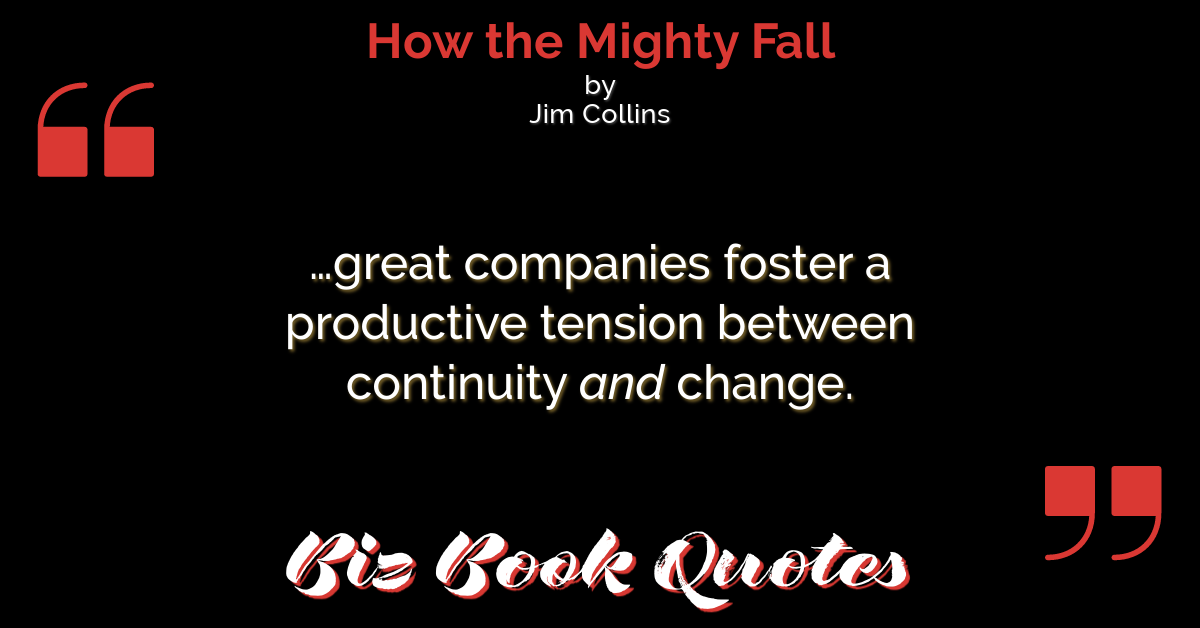 |
…great companies foster a productive tension between continuity and change.
|
036 |
 |
…in the later stages of decline, companies that change constantly but without any consistent rationale will collapse just as surely as those that change not at all.
|
038 |
 |
…if a great company consistently grows revenues faster than its ability to get enough of the right people to implement that growth, it will not simply stagnate; it will fail.
|
056 |
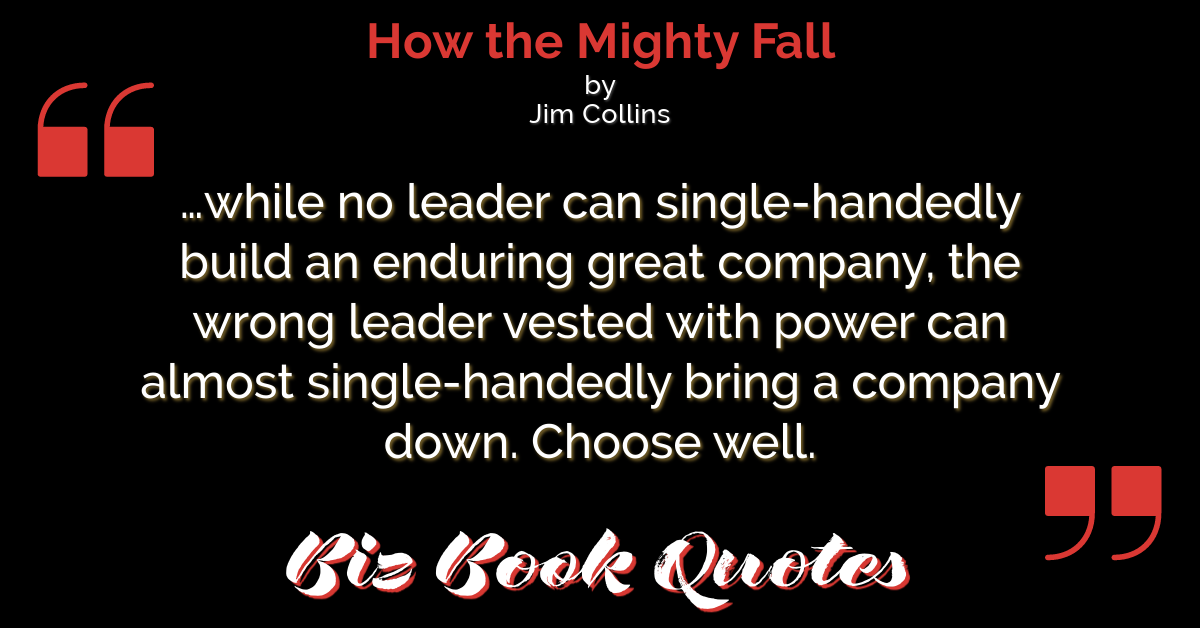 |
…while no leader can single-handedly build an enduring great company, the wrong leader vested with power can almost single-handedly bring a company down. Choose well.
|
062 |
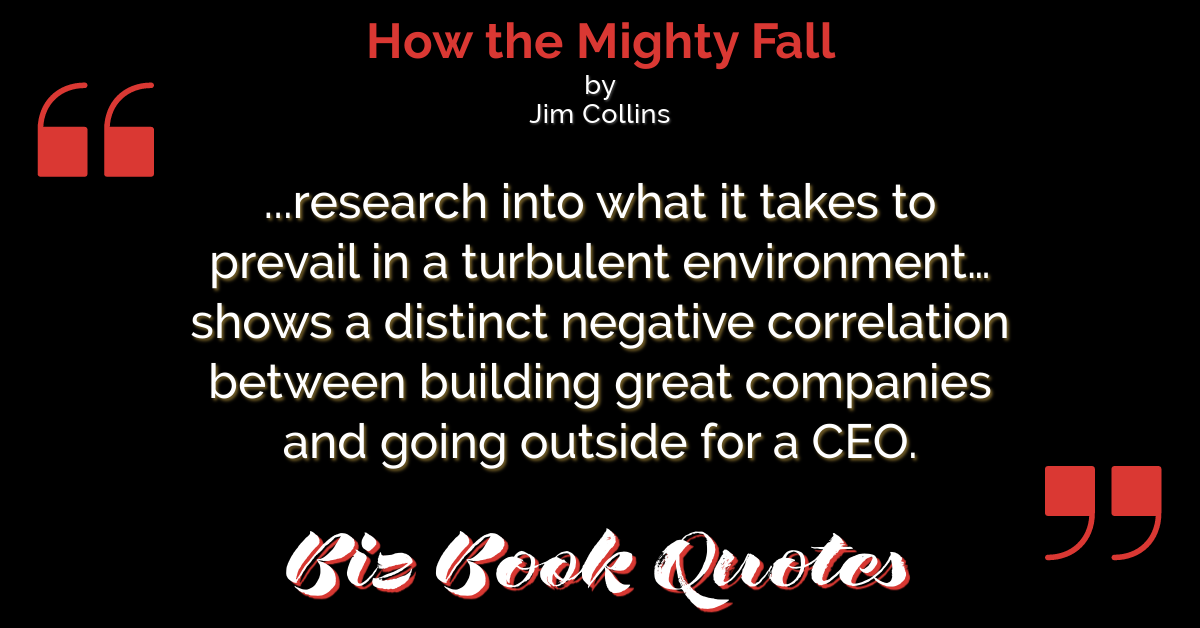 |
…research into what it takes to prevail in a turbulent environment… shows a distinct negative correlation between building great companies and going outside for a CEO.
|
095 |
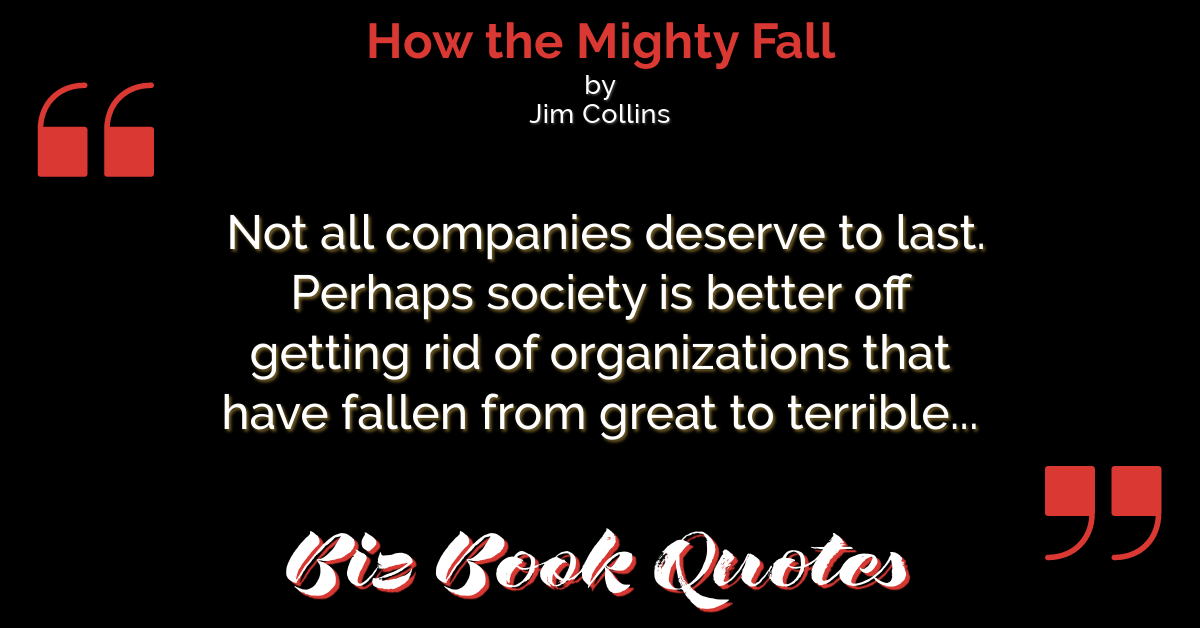 |
Not all companies deserve to last. Perhaps society is better off getting rid of organizations that have fallen from great to terrible…
|
111 |